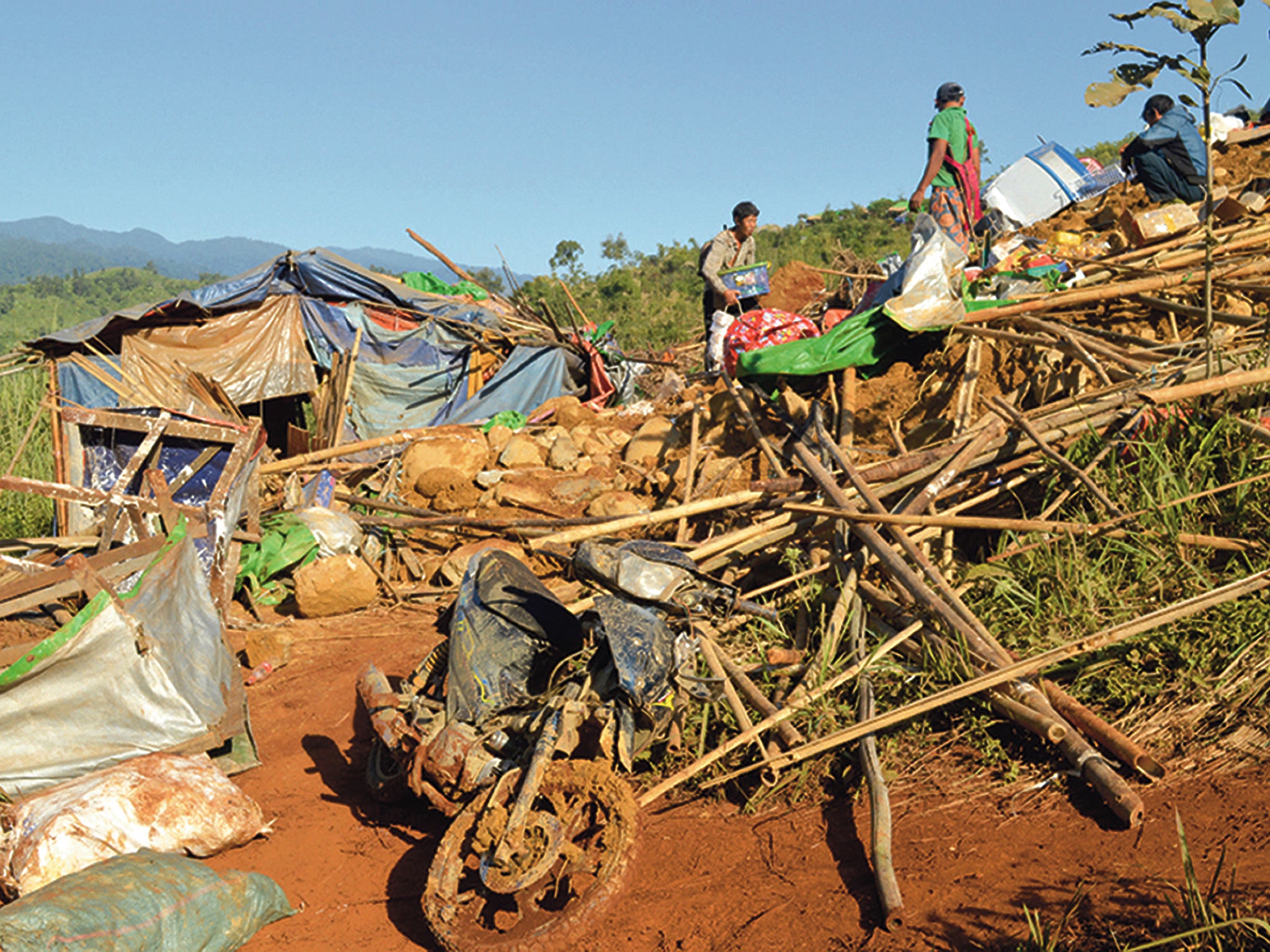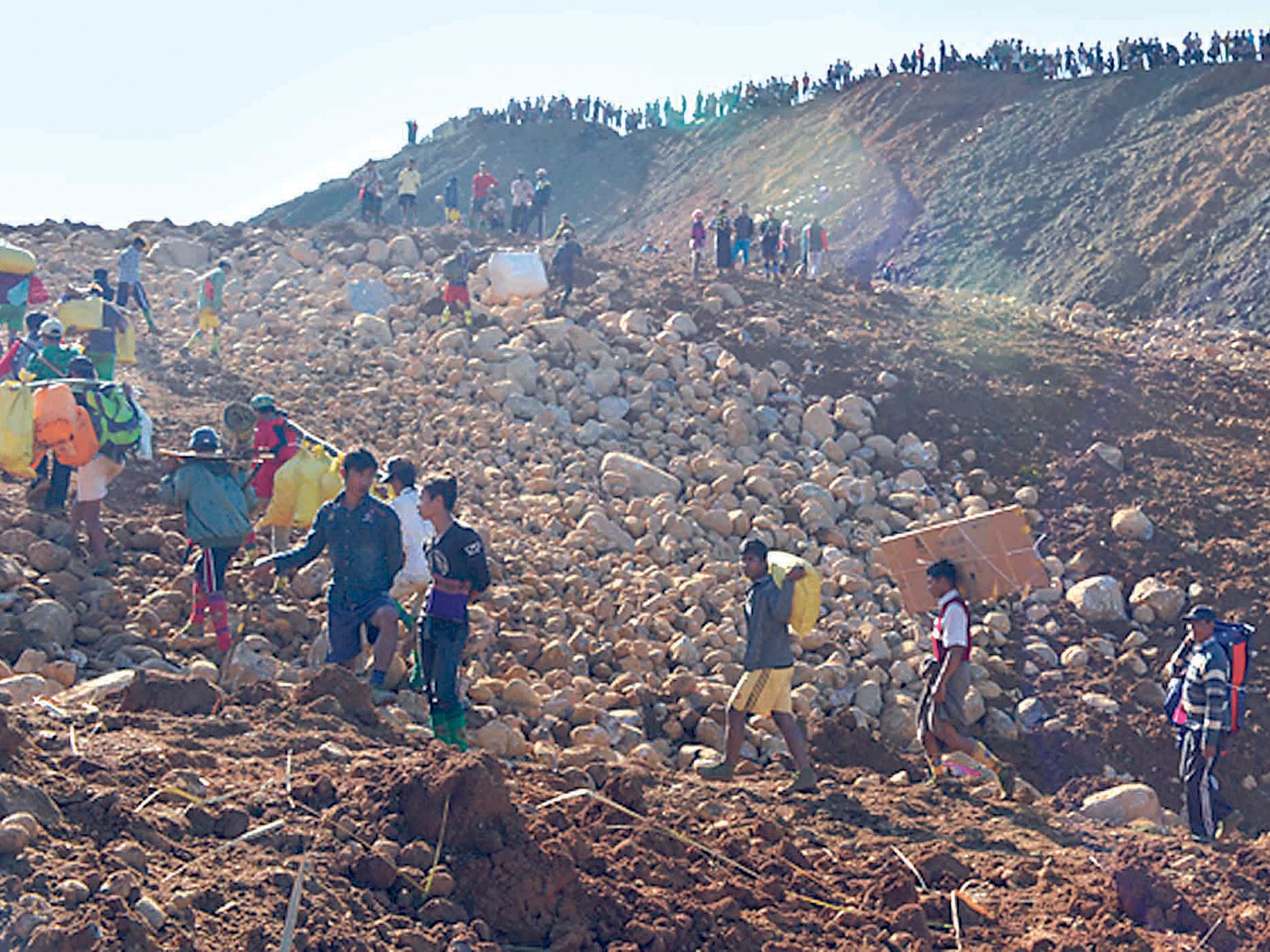Your support helps us to tell the story
From reproductive rights to climate change to Big Tech, The Independent is on the ground when the story is developing. Whether it's investigating the financials of Elon Musk's pro-Trump PAC or producing our latest documentary, 'The A Word', which shines a light on the American women fighting for reproductive rights, we know how important it is to parse out the facts from the messaging.
At such a critical moment in US history, we need reporters on the ground. Your donation allows us to keep sending journalists to speak to both sides of the story.
The Independent is trusted by Americans across the entire political spectrum. And unlike many other quality news outlets, we choose not to lock Americans out of our reporting and analysis with paywalls. We believe quality journalism should be available to everyone, paid for by those who can afford it.
Your support makes all the difference.A landslide near a jade mine in northern Burma has killed about 100 people, most of them villagers digging for scraps in a towering mountain of displaced earth, witnesses said. Many more people were missing.
The collapse happened on Saturday in the Kachin state community of Hpakant, said Brang Seng, a jade businessman, who watched as bodies were pulled from the debris and taken to a hospital morgue.
"People were crying," he said, adding that some lost loved ones when boulders and earth ripped down the slopes. "I'm hearing that more than 100 people died. In some cases, entire families were lost."

Lamai Gum Ja, a community leader, said homes at the base of the mine-waste dump were also flattened.
In addition to the dead, he estimated that between 100 and 200 people were missing.
Search and rescue teams wearing bright orange uniforms combed through the rubble for survivors.

Hpakant is around 600 miles north of Yangon, Burma's biggest city. The region, which borders China, is home to some of the world's highest-quality jade, bringing in billions of pounds a year, though researchers say most of that money goes to individuals and companies tied to Burma's former military rulers.
Burma only recently started moving from a half-century of dictatorship to democracy.
Hpakant, the epicentre of the country's jade boom, remains desperately poor, with bumpy dirt roads and constant electricity blackouts.
Informal miners risk and often lose their lives picking through scraps at the giant mines.
"Large companies, many of them owned by families of former generals, army companies, cronies and drug lords, are making tens or hundreds of millions of dollars a year through their plunder of Hpakant," said Mike Davis of Global Witness, a group that investigates revenue misuse.
"Their legacy to local people is a dystopian wasteland in which scores of people at a time are buried alive in landslides," he said.
Press Association

Join our commenting forum
Join thought-provoking conversations, follow other Independent readers and see their replies
Comments